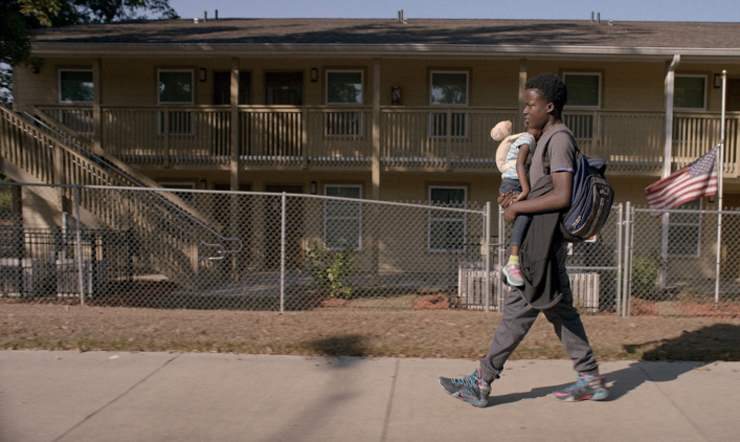
Previewed at 12edition of the Rome Film Festival, Life and Nothing More It is the second feature film by Spanish director Antonio Méndez Eparza, His first job in English.
The story told is that of Andrew - fourteen melancholy and lonely with a difficult experience in reform behind - and her mother Regina - eager to rebuild their lives after the failure of his first marriage, but with many difficulties to make ends meet. The meeting of the latter with a responsible man in love and could, somehow, help in everyday life. The things, But, soon take an unexpected turn.
The most interesting thing that the director wanted to stage here is probably just the periphery of American life to the present day. Ben described, about that, the environments, with their deserted streets and external seeds that look almost forgotten by the rest of the world, as well as dingy and cramped interior. The problem of a feature film as Life and Nothing More is, in reality, own script. Are many, as it has been said, the ideas from which the story kicks off. Sin, But, which - during the nearly two-hour feature film - Méndez Esparza seems to take a different direction each time, never accomplish what he originally started and, mostly, making all the work almost completely devoid of rhythm or narrative peaks. And here, if at the camera he seemed to focus exclusively on the young Andrew, After about half an hour it takes to follow the Queen without disconnecting from her and setting aside, inexplicably, the boy. The point is that it is not, But, nor an ensemble film, neither, nor, of a feature-length episodes. The same can be said for other important elements that are gradually brought in, to then be totally abandoned without any logic. this Ѐ, eg, the case of the character of the Queen's companion, which almost suddenly he leaves the scene and then not coming back for more and making sure that its very presence proves completely useless for the purposes of the narrative itself. In the same way, trumpismo's speech and the ensuing racism - that is faced when Andrew, after being treated in the wrong way by a couple at the park, ends up threatening them with a knife - suddenly it falls on deaf ears, when the boy is released (Obviously home runs and, Also here, without a minimum voltage). The real climax, But, It is almost to the end, when we see the Queen write a letter to Andrew that she herself wrote. Ѐ here, while the boy is intent on reading, He hears the mother's voice-over that says the words she wrote. Too bad that the latter is on, at the same moment, right next to her son.
What this feature Méndez Esparza, therefore, it is not just what is said a successful movie, we all agree. and yet, wanting to make a speech exclusively on directing, the author adoperate choices are also pretty interesting: perfectly in line with Zavattini theory, The camera follows the characters constantly with essential movements, employing every time the machine a few points and giving the whole an interesting tone almost documentary. Sin, therefore, It has burned a movie so. who knows, maybe, with his next job, the young Spanish filmmaker will know how to make amends. This, at least, It is what we hope.
marina fears
